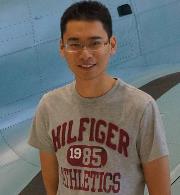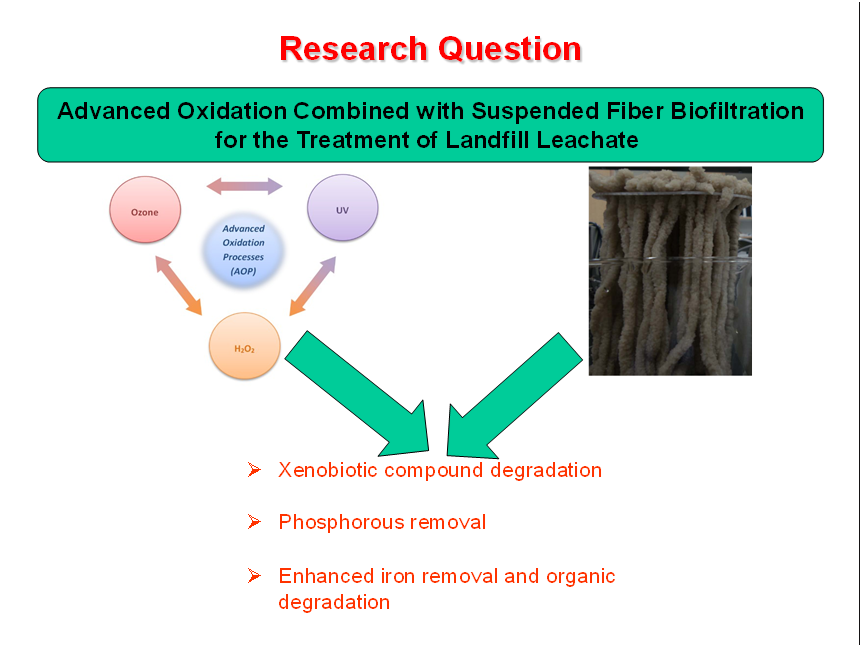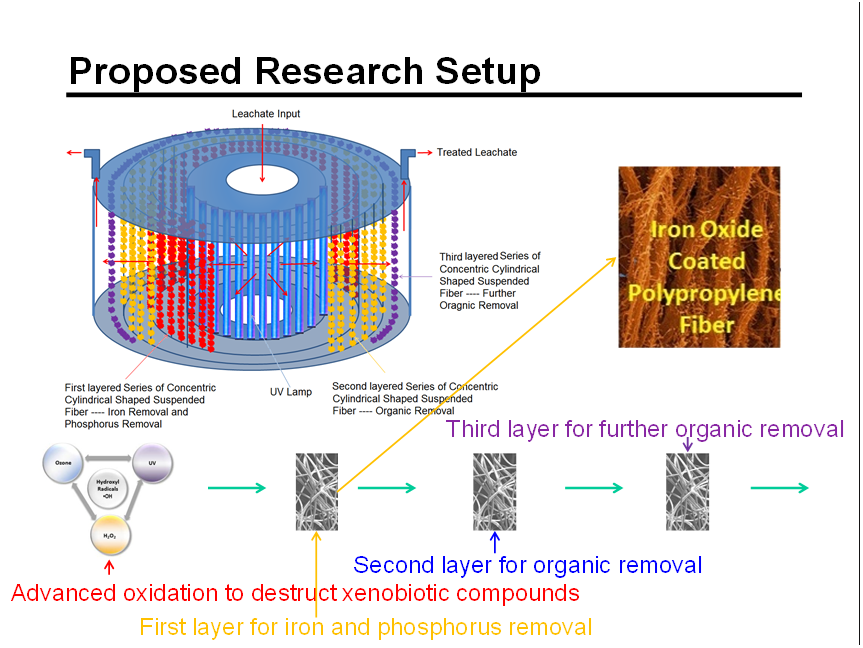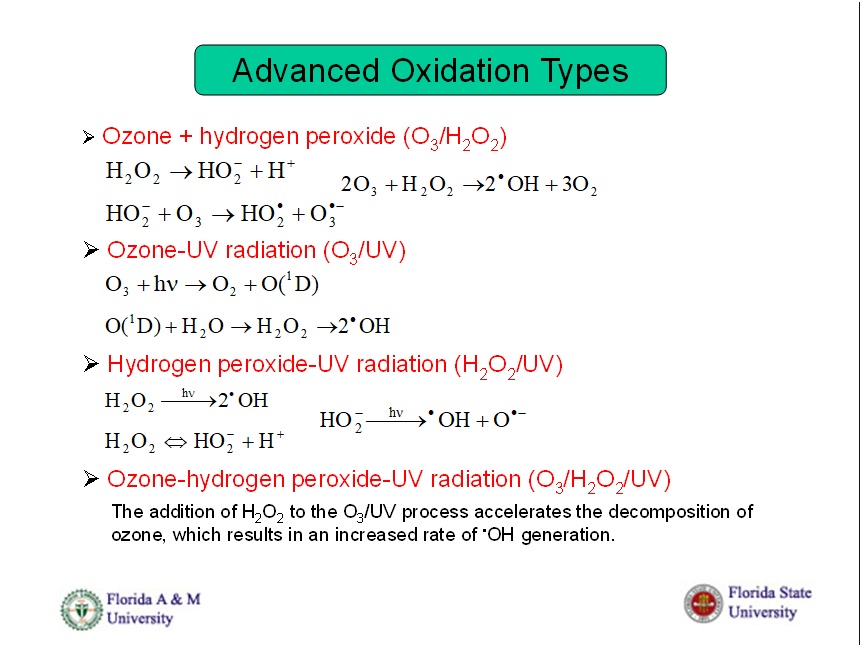
|
Gang Chen, Ph.D., P.E. |
|
Business Tagline or Motto |
|
Biofilter (II) |

|
Suspended Fiber Biofiltration for the Treatment of Landfill Leachate. Year II. Incorporation of Advanced Oxidation and Phosphorous Removal in a Single Unit |
|
Sponsored by the Hinkley Center for Solid and Hazardous Waste Management. Duration: September, 2015 to August, 2016 |
|
Objective: During the first year of the project, we investigated organic, iron and chloride removal using aerated leachate recirculation and suspended fiber biofiltration, together with the ultra-high lime with aluminum process. As a cost- and space-saving technology, suspended fiber biofiltration can effectively remove organic and iron from landfill leachate. Especially, suspended fiber biofiltration promotes biological contact oxidation, during which organic and iron can be removed more efficiently. For the second year, advanced oxidization will be introduced to a specially designed fiber biofilter for xenobiotic degradation and phosphorous removal of landfill leachate in a single unit. The introduced advanced oxidation will also lead to improved aerobic biodegradation of organic compounds and precipitation of heavy metals. After xenobiotic destruction by advanced oxidation, iron, phosphorous and organic compounds will be removed step by step by a series of concentric cylindrical shells of suspended fiber biofilters. The combination of advanced oxidizing processes, i.e., the usage of oxidizing chemicals and the subsequent suspended fiber biofiltration in a single treatment unit will provide a novel and cost- and space-saving treatment alternative for handling landfill leachate at landfill sites.
Rationale: Many of the landfills may contain xenobiotic organic compounds including monoaromatic hydrocarbons (i.e., benzene, toluene, ethylbenzene, and xylenes, etc.) and halogenated hydrocarbons. Xenobiotics are well documented to have negative effects in the aquatic environment and are resistant to biodegradation. Besides xenobiotic organic compounds, high phosphorous content is also an issue for landfill leachate management. As alternatives to biodegradation, advanced oxidation processes, i.e., the usage of oxidizing chemicals such as ozone (O3), hydrogen peroxide (H2O2) and UV radiation, etc. can effectively break the stable xenobiotic structures. In addition, iron oxides formed during advanced oxidation have high binding strength for phosphorus, which have the potential implementations of phosphorus removal. For this research, in order to degrade xenobiotic compounds and remove phosphorous from landfill leachate, advanced oxidizing processes, i.e., the usage of UV or oxidizing chemicals will be introduced to the leachate treatment and suspended fiber biofiltration will be configured to enhance iron and phosphorous removal in addition to organic degradation. This novel design will provide a new alternative means for the treatment of landfill leachate with high organic, xenobiotic, iron and phosphorous contents. Besides the effluent quality, this research will also take into consideration of the treatment costs. At the end of this research, cost benefits of the landfill leachate treatment will be analyzed and compared with those of conventional treatment processes and reported in this research. |
|
Students Working on the Project |

|
Kein Vu, Ph.D. Student at Florida State University |
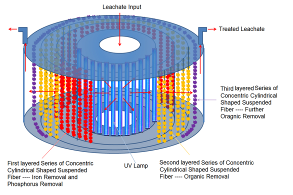
|
Boya Wang, Master of Science Student at Florida State University |
